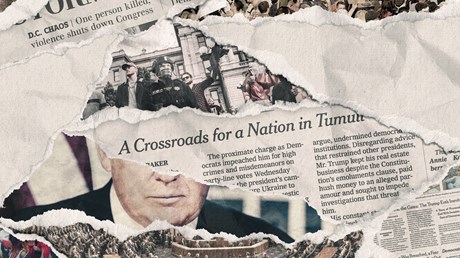
Populism Poses Dangers to Democracy. It Does the Same to Christian Witness.
How polarizing narratives corrupt our hearts and redefine our faith.

After touring the United States in the early 1830s, the French aristocrat Alexis de Tocqueville concluded that “the organization and establishment of democracy among Christians is the great political problem of our time.”
Nearly two centuries later, the problem in the United States has evolved from establishing to sustaining democracy, but the underlying challenge for American Christians remains unchanged. As citizens of a democratic republic, we are called to think Christianly about democracy, respond rightly to it, and live faithfully within it. Among other things, this means figuring out what to make of the populist wave currently transforming American politics on the left and the right.
Before we can do so, however, we must first define what we mean by “populism,” and that turns out to be more complicated than you’d think. At first glance, the term seems so malleable as to be useless. Populism can appear among Democrats and Republicans, socialists as well as capitalists. Since 2016, the two best-known populists in the United States have been Donald Trump and Bernie Sanders. Think about that for a moment. What kind of phenomenon can bridge such a great divide?
All-consuming urgency
The answer begins to take shape once we shift our attention from policy to strategy. What unifies populism is its consistent rhetorical approach—its distinctive way of framing political issues, appealing to voters, and justifying the exercise of power once in office. Psychological research suggests that fact-based political arguments play a minuscule role in influencing the votes that we cast. The most persuasive political arguments come packaged as stories. They are narratives that help us to situate our lives, ...
from Christianity Today Magazine https://ift.tt/3kMKHLG

0 Response to "Populism Poses Dangers to Democracy. It Does the Same to Christian Witness."
Post a Comment